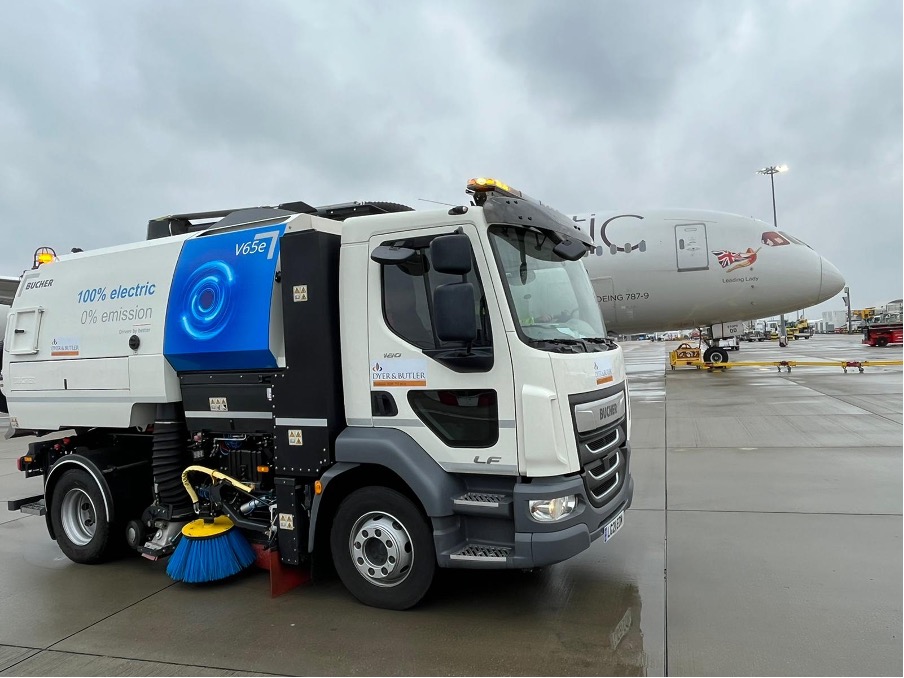First all-electric road sweeper trial at Heathrow cuts carbon and costs
29th July 2022
M Group Services and its operating businesses are committed to incorporating innovative methods and technologies into its operations in response to reducing carbon emissions and the road to net-zero.
Dyer & Butler recently trialled the first fully electric Bucher Municipal road sweeper on their Heathrow Airport contract in order to reduce carbon emissions and cut costs.
The road sweeper has an excellent battery life. Its 200kWh battery has the capability to complete an eight-hour sweeping shift from just one charge and can save on average 110kg of CO2 per day. Annually, the road sweeper has the potential to save the same amount of CO2 as 50 direct flights from London to New York (3,461 miles).
In comparison to its diesel counterpart, this machine has the potential to save on average £18,000 a year in fuel and has an estimated cost of only £2,000 to charge each year.

Lewis Robinson, Dyer & Butler’s Aviation Contracts Manager at Heathrow Airport, said: “Our drivers offered incredibly positive feedback. They felt the sweeper held its charge well and its performance was just as good as the standard diesel sweeper. The success of this trial paves the way to testing additional green equipment.”
The road sweeper uses a 600V lithium-ion phosphate battery which charges faster, lasts longer and has a higher power density for more battery life in a lighter package. The electric sweeper also has an on-board battery system to monitor battery health.
As the sweeper is 100% electric is produces zero emissions and is much quieter than its counterpart meaning it is ideal for operating during quieter hours.
Across M Group Services, we are dedicated to operating in a sustainable manner for our communities and the environment. As a member of the Climate Group’s EV100 initiative, we are committed to electrifying our core fleet of over 8,000 vehicles by 2030. We are focused on our goal of halving Scope 1 and 2 carbon emissions by 2030 and reaching net-zero (all scopes) by 2050 and trials like this are a key step towards these commitments.
